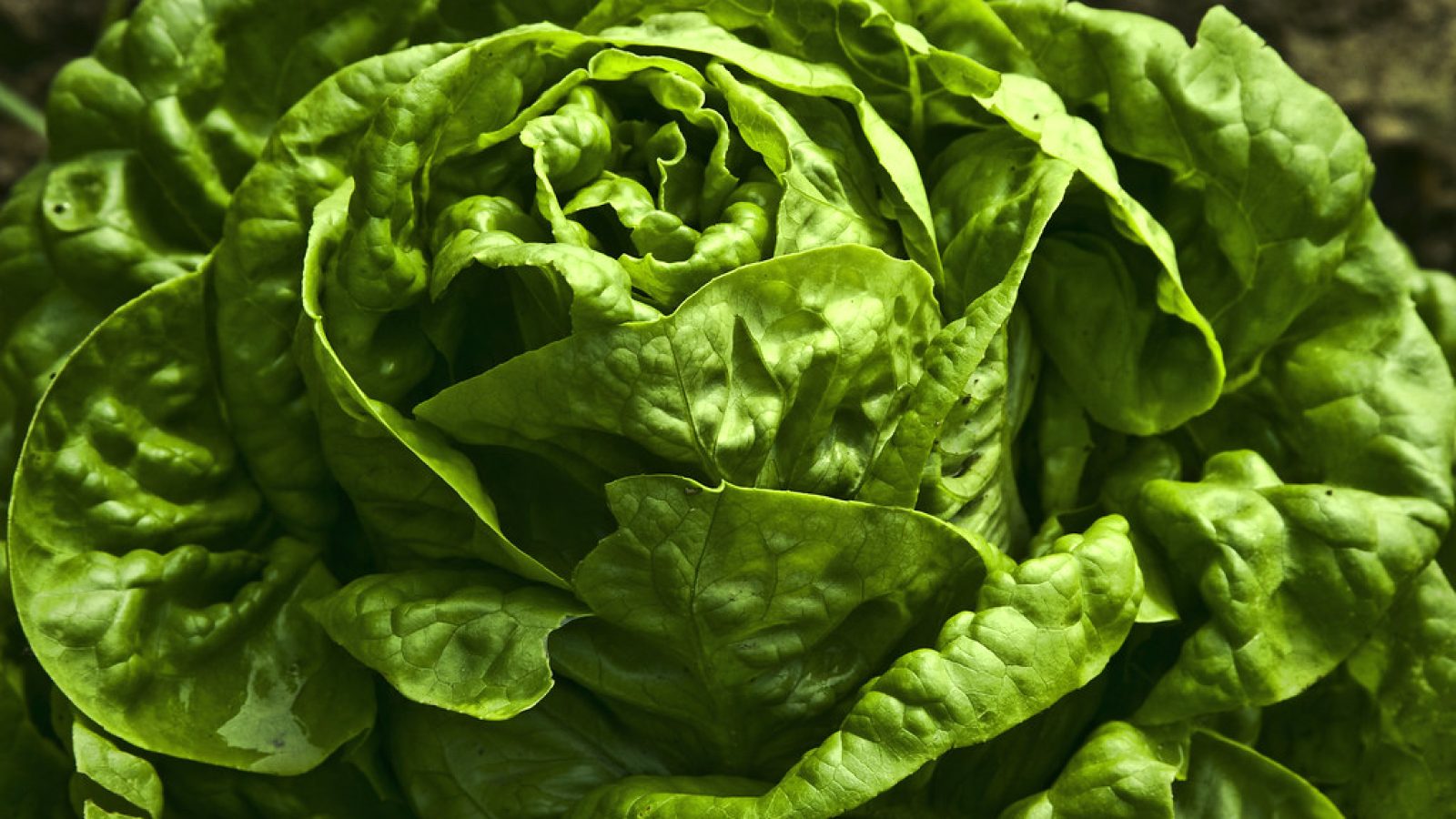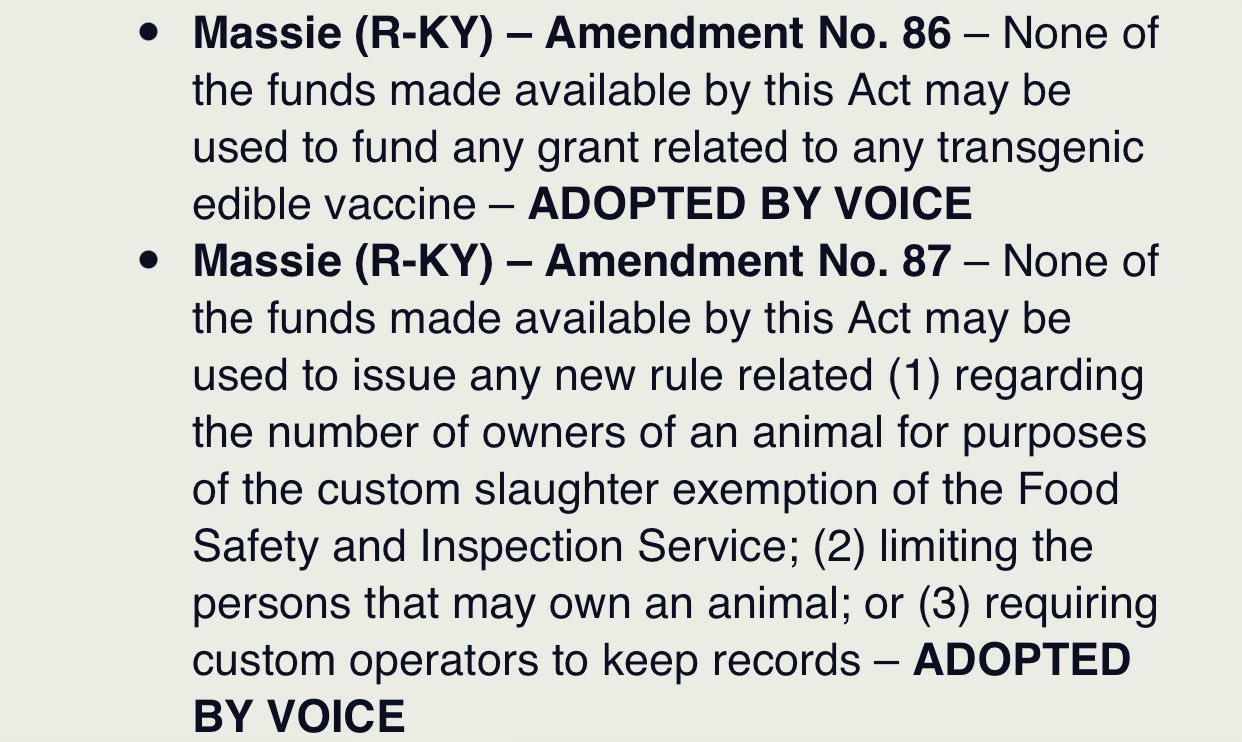Rep. Thomas Massie (R-KY) said the House of Representatives passed an amendment to prohibit funding research for transgenic edible plant vaccines.
“Scientists, funded with your tax dollars, are trying to turn edible plants like lettuce and spinach into mRNA vaccine factories. It’s dangerous to play God with our food. The House just passed my amendment to prohibit USDA funding of this research,” Massie wrote Wednesday.
“My amendment, which states that ‘none of the funds made available by this act may be used to fund any grant related to any transgenic edible vaccine.'” Massie said on the House floor.
“Does the term ‘transgenic edible vaccine’ sound far-fetched?” he asked.
“Well, it’s not. We’re funding it. In fact, scientists from the University of California, Riverside, funded with your taxpayer dollars, have been studying whether they can turn edible plants such as lettuce and spinach into mRNA vaccine factories, thereby creating a transgenic edible vaccine,” Massie explained on the House floor.
WATCH:
Scientists, funded with your tax dollars, are trying to turn edible plants like lettuce and spinach into mRNA vaccine factories. It's dangerous to play God with our food. The House just passed my amendment to prohibit USDA funding of this research. pic.twitter.com/XEyWGGZm5q
— Thomas Massie (@RepThomasMassie) September 27, 2023
Massie shared an update of ‘food freedom legislation’ he’s attempting to get passed in the House of Representatives, including prohibiting funds for transgenic edible plant vaccines.
The amendment on transgenic edible plant vaccines was passed by voice.
Update on Food Freedom legislation from last night:
✅Protecting HerdShares: passed by voice
✅Prohibiting funds for transgenic edible plant vaccines: passed by voice
⁉️Stopping the electronic cattle tag mandate: vote today!
⁉️Ending the corrupt check-off program: vote today! pic.twitter.com/23vCCgCsQR
— Thomas Massie (@RepThomasMassie) September 27, 2023
The Defender reports:
The amendment, introduced by Rep. Thomas Massie (R-Ky.) to the agricultural appropriations bill H.R. 4368, would bar the U.S. Department of Agriculture (USDA) and the U.S. Food and Drug Administration (FDA) from funding the vaccines for fiscal year 2024.
A vote on the full bill in the House is still pending as of this writing.
In an interview with The Defender, Massie said he introduced the amendment after learning about a recent project in California, funded by a $500,000 grant from the National Science Foundation, that involves growing lettuce and trying to get the lettuce to produce mRNA vaccines that are intended to be consumed by humans who eat the lettuces.
Massie said he is concerned “that plants cross-pollinate and pollen from these modified plants, food-producing plants, could carry in the wind to other fields and contaminate them. And we could really contaminate a lot of our food supply with unknown doses of vaccines that would deliver unknown dosages.”
“Plants release pollen and it can go anywhere with the wind or with insects, and I just think it’s a bad idea,” he added.
After listening to @RepThomasMassie in spaces with @TRHLofficial I have started reading different articles about transgenic edible vaccines…
Y’all, this is scary. https://t.co/iYoEMMM62B
— Ellie Beacon (@EliotBeacon) September 29, 2023
El Universal discussed research by Mexican scientists to develop edible COVID-19 vaccines using transgenic tomatoes:
Within a year, researchers at the Autonomous University of Nuevo León (UANL) would be in conditions to conclude the necessary trials for the production of an edible vaccine based on the intake of genetically modified tomatoes , which would stimulate the immune response of the body to generate antibodies against COVID-19 .
Daniel Garza García, a biotechnologist of the UANL’s School of Biological Sciences , is in charge of a team of six researchers that are searching for a way to battle the new coronavirus which, in less than six months, has infected over eight million people worldwide.
The Mexican scientist explains that using plants as a platform for the production of vaccines and drugs is an innovative strategy that offers important benefits for “made with plants” there are lower production costs , less time to obtain the antigenic product, and more security.
University of California Riverside (UCR) researchers are investigating turning edible plants like lettuce into mRNA #vaccine factories and making edible vaccines, which could have significant implications in combating #COVID19.
Report by @AaronReichhttps://t.co/H5IKDzduvK
— The Jerusalem Post (@Jerusalem_Post) September 18, 2021
Cont. from The Defender:
According to a 2013 scientific paper, transgenic edible vaccines “are prepared by introducing selected desired genes into plants and inducing these genetically modified plants to manufacture the encoded proteins.”
Such vaccines offer “several potential advantages” to conventional vaccine production techniques according to the paper, including a potentially lower cost of production that would be suitable for developing countries.
ADVERTISEMENTEfforts to develop transgenic edible vaccines are not new — scientific literature on the topic dates back to at least 1999.
What is new with some current attempts to develop transgenic edible vaccines is that they would be geared to deliver mRNA vaccines orally.
“These are all genetically modified crops,” Massie said. “They’ve been injected with mRNA or spliced with DNA, with the intent of creating copies of that RNA or DNA. The plants are pretty effective at that.”
Robinson said this approach is not new. “Scientists have been trying to produce edible vaccines in plants for many years and some testing has occurred in animals and humans.”
However, she added, “Thus far, not one plant-produced vaccine has been approved anywhere, as far as I know. What does that tell us? Either they don’t work, or they are not safe, or both,” Robinson said.





Join the conversation!
Please share your thoughts about this article below. We value your opinions, and would love to see you add to the discussion!